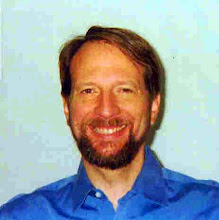I have the opportunity to take a workshop for Alexander Technique teachers tomorrow with Rosa Luisa Rossi, who's visiting from Zurich.
She's asked some questions in advance of the workshop that challenge me to think about my Alexander Technique teaching. I hope this clarifies things and helps me move forward with my practice.
Why do I do what I do? How do I do what I do? When do I do what I do? -and, what do I like about the Alexander Technique?
First I'll say what I like about the Alexander Technique.
I like waking up, becoming aware of the world around me and the people and things in it. I like being open, free. Available to respond in a fresh way. Confident. Knowing I'm well-made for the tasks I may choose.
Now, some of my attempts to describe AT, as with doing anything that matters to me, have come along with insecurities and questions. How can I transform (with curiosity?) those questions into a positive and confident expression of this work that I love?
Why do I do what I do? How do I do what I do? When do I do what I do?
Why do I ask a lot of questions and engage in a dialogue before putting my hands on you?
I would say to a student: I want to know who you are, what you struggle with, what you want to accomplish, and how, with what qualities, you want to be and act. I want to know these things both in terms of specifics and in general, global terms.
Why do I come over and put my hands on you? It intensifies, multiplies by many times the effect I have on you.
The first thing I wish to share, the first effect, is to calm and settle you, bring your awareness into here and now. We want to prevent too quick a habitual reaction. We also would hope to prevent undue tension in your back, neck and shoulders.
Flowing out of this, I'll invite you to think about how you're poised. Become aware of your head's potential orientation up and out toward what's around you. I'll help both by touch and by having you let your eyes and ears stay open. I'd want you to become aware of your back's potential for length and width, your bottom on the chair and/or your feet on the ground, your legs and arms long, free and movable. Expansive directions, availability for movement.
Continuing to refresh these directions, we'll choose whether and how to move next. We might include an activity that's important to you, such as playing your musical instrument (many of my students are my fellow musicians or singers).
Because this is a lesson and I want you to have something to take with you, I'll ask what idea you've gotten and how you might apply it in your daily life. This is also an opportunity to see what you understand, and possibly to prevent trying to do something counterproductive. It's also a point to start from next time. Did you think about AT? Was it helpful? Where do we go from here?
More about how do I do what I do. On a good day, I bring what I love about the Alexander Technique: presence, confidence, availability, openness. When it's not completely there, when I'm distracted by my worries, I remember to just stop; I drop my worries and my left shoulder drops an inch as if the weight of the world has just departed. Then I have the physical space in my chest for breathing and heart; I become more alert and energized, more available and confident.
I'm looking forward to working with Rosa Luisa tomorrow. The practical work always helps build my confidence in my own Alexander Technique teaching. Please contact me at davizao@juno.com or 301-562-9079 and I'll show you in person!

No comments:
Post a Comment